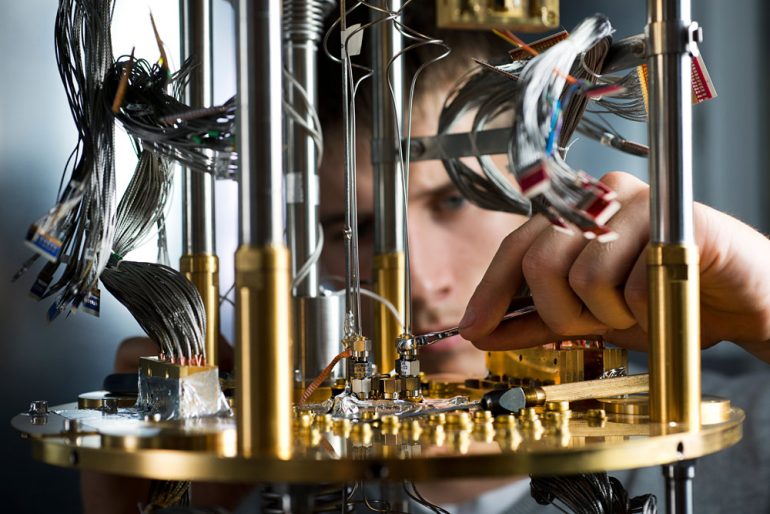D-Wave Systems, the quantum computing company founded in Burnaby, B.C. and now with offices in Palo Alto, Calif., has reported a 509-percent jump in revenue in its first quarter of 2025.
The firm achieved a record revenue of $15 million USD ($20.9 million CAD) that was “primarily” the result of selling its first Advantage quantum computing system to Germany’s Jülich Supercomputing Centre. The hardware will help researchers “facilitate breakthroughs” in AI and quantum optimization, according to D-Wave.
“The first quarter of 2025 was arguably the most significant in D-Wave’s history, especially in terms of our unique ability to deliver quantum value today to our customers and the scientific community.”
Alan Baratz, D-Wave
The company’s gross profit also surged 736 percent to $13.9 million USD ($19.3 million CAD) thanks to selling a system with a higher profit margin.
The firm still recorded a net loss of $5.4 million USD ($7.5 million CAD), but that was a significant improvement over a Q1 2024 loss of $17.3 million USD ($24.1 million CAD).
D-Wave noted that it had 133 customers in the past four quarters versus the 128 a year earlier, but cautioned that the value of its bookings had dropped from $4.5 million USD ($6.3 million CAD) in Q1 2024 to $1.9 million USD ($2.6 million CAD) over the same period this year.
CEO Alan Baratz claimed the quarter was a major milestone. He credited this to the Jülich sale, Ford’s deployment of a quantum application to streamline car manufacturing in Turkey, and assertions that the company demonstrated quantum supremacy—that is, it had a quantum computer solve a problem a conventional computer couldn’t address in a realistic timeframe.
“The first quarter of 2025 was arguably the most significant in D-Wave’s history, especially in terms of our unique ability to deliver quantum value today to our customers and the scientific community,” Baratz said.
D-Wave isn’t the first to tout quantum supremacy. Google believed its Sycamore processor achieved the feat in 2019, while researchers at the University of Science and Technology in China made similar assertions multiple times. However, D-Wave claimed it had solved a real materials simulation problem using annealing (a technique that uses quantum fluctuations to explore solutions) that solved optimization issues.
RELATED: How meaningful is D-Wave’s claim to quantum supremacy?
Critics, including Photonic CEO Paul Terry and Quantacet managing partner Martin Laforest, previously told BetaKit that quantum supremacy is an important milestone but that quantum utility (usefulness in real scenarios) is more valuable.
D-Wave has been riding growth in quantum-related stocks in recent months, but saw its share price drop after Nvidia CEO Jensen Huang predicted in January that truly useful quantum computers were at least 15 years away. Baratz declared that Huang was “dead wrong” and maintained that D-Wave was “likely many years ahead” of rivals that had yet to commercialize their systems. The company sold $175 million USD ($243.8 million CAD) in shares this December 2024 to aid its development.
The company faces competition on multiple fronts. Canadian brands like Photonic, Nord Quantique, and Xanadu have claimed major breakthroughs in areas like error correction and networking. Microsoft also believes its Majorana 1 chip, which relies on a newly discovered class of material, could be key to making reliable, large-scale quantum computers.
Feature image courtesy of D-Wave Systems.


